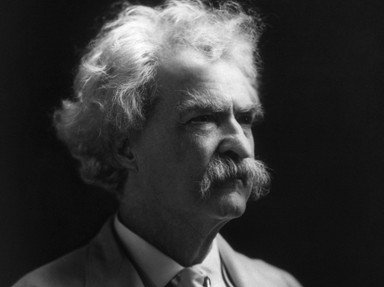Quiz Answer Key and Fun Facts
1. As the story begins, the country is raptly enthusiastic about the great war it is fighting and the glory of battles to be won. What does the author say about those who are against the war?
2. Twain sets the stage with a Sunday church service for the new volunteers going off to war. What text does the minister quote to begin his great prayer?
3. The minister's "long prayer" is interrupted by a stranger who walks silently up the middle aisle. How does Twain describe this stranger?
4. The stranger claims to have come "bearing a message from Almighty God."
5. The stranger explains that God has heard the prayer of "His servant your shepherd," and is willing to grant it. What must the congregation do receive the boons they have asked for?
6. The stranger points out a central problem in the minister's prayer: that it is really two prayers. What divides one prayer from another?
7. The stranger continues with an addendum to the minister's "great prayer". Which phrase goes in the blank?
"O Lord our God, help us to ____________"
8. Which of these does the stranger not ask of God in his addendum to the prayer?
9. What are the stranger's last words in the story?
10. As the story concludes, how does the audience react to the stranger's message?
Source: Author
stuthehistoryguy
This quiz was reviewed by FunTrivia editor
agony before going online.
Any errors found in FunTrivia content are routinely corrected through our feedback system.

